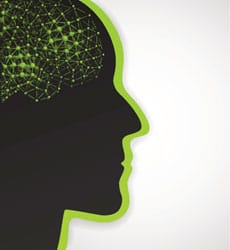Problems with the heart have long been diagnosed using tools like electrocardiograms, otherwise known as EKGs. Scans of the brain can already help doctors determine physical and physiological problems, and now researchers think they could improve the accuracy of mental illness diagnoses. The idea holds a lot of promise. If doctors can order a simple, non-invasive, fairly inexpensive scan that can quickly indicate or rule out mental illnesses, both patients and medical professionals will benefit. However, the idea of scanning the brain to prove a mental illness exists is not without controversy. Some believe it could be a violation of civil and human rights. They argue that the technique is not fool-proof and cannot diagnose an illness with certainty. There is a possibility of people getting misdiagnosed, and then mistreated as a result. Regardless of the naysayers, brain scanning for mental illness is improving all the time and could be beneficial in the field of mental health care.
Functional Magnetic Resonance Imaging
The new type of scan that holds so much promise for diagnosis is called functional magnetic resonance imaging, or fMRI. Regular MRI scans have been around for a long time, but fMRI is newer. The technique measures activity in different parts of the brain by looking at the levels of oxygen in the blood. This is an indirect way to look at brain activity. The more oxygenated blood in a region, the higher the activity there. Researchers use fMRI to scan patients while they perform certain tasks. When a part of the brain “lights up,” they know that it is involved in completing the task.
fMRI as Diagnostic Tool
Using fMRI as a diagnostic tool is promising for several reasons. An EKG is used so often to determine problems with the heart because it is a technique that is relatively cheap, neither painful nor invasive for the patient, and reliable. fMRI shows potential for similar reasons. The only question mark is just how reliable and effective the technique is for determining the presence of depression, schizophrenia, autism and other disorders. The idea is that the scans can detect when activity in certain parts of the brain is different from normal. It can also detect unusual communication between different areas of the brain. Researchers think that there are distinct patters of abnormal activity that characterize certain mental illnesses. If this is true, health professionals could not only better diagnose illnesses, they could track the effectiveness of treatments for them. Several experiments have shown that the fMRI scan can be successful at diagnosing specific mental illnesses. Comparisons between people with depression, for instance, and those without, show definite differences in fMRI scans. The depressed patients showed similar extra activity in one part of the brain that showed they overthought and worried about things. In another study, schizophrenic patients were shown to have similar fMRI scans that were different from those without the disorder.
Problems With Diagnosis
The research, the patient-friendly nature of the scans, and the improvements in technology make fMRI a potential new diagnostic tool, but there are issues. The main issue is making sure that scans can accurately diagnose mental illness before they are used for that purpose. False positive diagnoses are a big concern. In addition to the studies that show the ability to distinguish between brains with mental illness and those without, there are studies that demonstrate false positives can happen. Another major hurdle is the difficulty of diagnosing someone who may have more than one mental illness at a time. And this is a big problem because this includes many, many people. The studies using fMRI as a successful diagnostic tool only looked at patients with a single, chronic mental disorder. Yet another potential problem is that fMRI may not be able to detect the early stages of a mental illness. The participants in the studies had been struggling with their illness for many years. In spite of the many issues still to be sorted out, fMRI could prove to be an invaluable tool for those working in the mental health professions. It may be a long way from being a definite diagnostic tool, but the ability to better understand what mental illness looks like in the brain and to track how well treatments work can only help patients.

